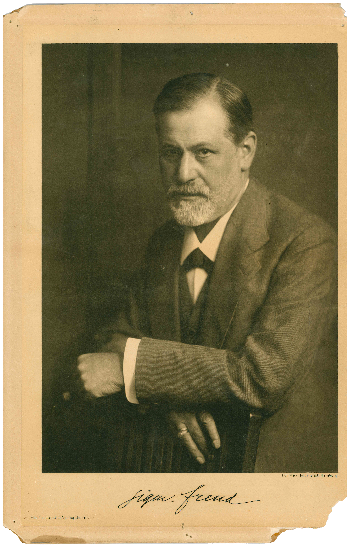 The archives of the British Psychoanalytical Society are an important resource for the history of psychoanalysis in Great Britain and abroad, reflecting the Society’s role in medicine, mental health and wider society. The collections include a wealth of material relating to the history and clinical practice of the British Psychoanalytical Society and the papers and correspondence of eminent psychoanalysts such as Jones, John Rickman, James & Alix Strachey, Sylvia Payne and Michael Balint.
The archives of the British Psychoanalytical Society are an important resource for the history of psychoanalysis in Great Britain and abroad, reflecting the Society’s role in medicine, mental health and wider society. The collections include a wealth of material relating to the history and clinical practice of the British Psychoanalytical Society and the papers and correspondence of eminent psychoanalysts such as Jones, John Rickman, James & Alix Strachey, Sylvia Payne and Michael Balint.
Our archives are stored in a dedicated strong room and the Archivist manages preservation and access to them, ensuring they are catalogued and packaged in line with international archival standards. Catalogues for our collections are online here. A comprehensive enquiry service is provided and scholars can make an appointment to consult papers in the Institute Library, by contacting the Archivist on [email protected].
We continue to develop our collections as a resource by accepting donations of appropriate material. The Chair of the Archives Committee is happy to advise members or their families on how best to provide for the future of their papers.
Brief History of the collections and examples of how the archives have been used
On 30 October 1913 Ernest Jones created the London Psychoanalytical Society with fifteen members. It soon ran into internal difficulties. At the end of the war Jones dissolved it and it was reconstituted as the British Psychoanalytical Society on 20 February 1919. A period of rapid institutional development followed. The International Journal of Psychoanalysis was founded in 1920, the Institute of Psychoanalysis and International Psychoanalytical Library in 1924 and then the London Clinic in 1926. Between 1927 and 1929 Jones successfully represented psychoanalysis in a special committee of the British Medical Association to investigate the claims of psychoanalysis as a bona fide treatment. The records of the Journal, the Clinic and Jones’ representations to the BMA all form an important part of the collections.
Ernest Jones remained President of the British Society from 1919 to 1944. During his active involvement in the Society, he encouraged Melanie Klein to move to London in 1926 and from 1934 onwards he oversaw arrangements for the emigration of European Jewish analysts, largely to America and England, amongst them the Freuds. With the emigration of European psychoanalysts to London, the British Society and the Institute became the foremost psychoanalytic organisation in the world; English became the first language of psychoanalysis. The problem of integrating analysts from a different psychoanalytical tradition within the British Society played a large part in the famous Controversial Discussions and Pearl King and Riccardo Steiner’s book, The Freud-Klein Controversies 1941-45 (1991) drew extensively on material held in the archives. In addition, after Jones retired from the Presidency of the Society he began in 1947 writing his biography of Freud (published 1953-57) and this work is also recorded in the archives.
Who should I speak to?
Please contact our Archivist, Ewan O'Neill, with any enquiries about archival collections. The Archivist can answer brief enquiries but for more lengthy enquiries, researchers are advised to visit the archives or hire a professional researcher to visit on their behalf.
Please note that all appointments must be booked in advance.
Enquiries about published material should be directed to the library staff: [email protected]. Further information is available on the library webpage.
Contacts
Chair of the Archives Committee: Jan Abram
Archivist: Ewan O'Neill
Telephone 020 7563 5010
Email [email protected]
Address
Archives of the British Psychoanalytical Society
Institute of Psychoanalysis
112a Shirland Road
London W9 2BT
Visitor hours
Archives open by appointment only.
Please note
All researchers are required to sign our Rules & Conditions form and to observe our guidelines for the safe handling of archival material. Laptops may be used. It is also possible to purchase a license to photograph some documents using a digital camera subject to the Archivist's approval.
Please note that collections may be temporarily closed while cataloguing work is carried out.
Preservation
We have a 'preservation for access' policy to make our collections as accessible as possible to researchers whilst taking steps to reduce the risk of damage to records.
Please remember:
All researchers are required to follow our handling guidelines
All photocopying must be carried out by the Archivist
Bound volumes, photographs and fragile items cannot be photocopied.
A copy of our photocopying policy is available on request.
